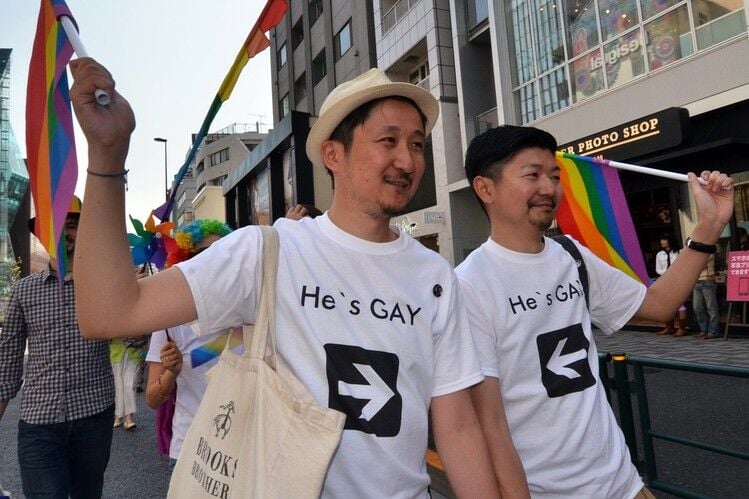Tokyo becomes latest city in Japan to recognise same-sex partnerships

Tokyo, Japan has become the latest city to recognise same-sex partnership rights in terms of housing, child-rearing, and healthcare. But, same-sex marriage is still prohibited nationwide, leaving out other legal protections that are currently only afforded to heterosexual married couples. The Tokyo Partnership Oath System was enacted on Tuesday, with many LGBTQ community members praising the legislation as a step towards achieving equal rights for sexual minorities in the country.
One transgender activist and vice representative of Partnership Act for Tokyo, Fumino Sugiyama, says he is happy to be recognised.
“As a 41-year-old sexual minority and Tokyo resident, it’s a joy to have my presence finally acknowledged practically for the first time.”
Another representative of the same group, Soyoka Yamamoto, says although the new system isn’t legally binding, it does finally address many of the concerns that same-sex couples in Tokyo have.
“But we cannot pause here.”
According to The Japan Times, Yamamoto says the new system can serve as a catalyst for achieving a society where Japan’s sexual minorities’ rights are equally protected. Tokyo follows eight other prefectures in fully implementing a partnership system. Setagaya, and Shibuya wards already introduced their own back in 2015. Now, over 200 municipalities have a system in place. Now, more than 60% of Japan’s population is similarly covered after Tokyo’s joining.
In Japan’s capital, couples with at least one person who identifies as a sexual minority can apply for their partnership to be officially recognised. But, at least one out of the two people in the partnership must also live, study or work in Tokyo. If no one in the partnership is doing one of those three things currently, they have three months to move to the prefecture to join the new system.
The human rights division of the Tokyo Metropolitan Government introduced guidelines that state that the system will “create an environment where sexual minorities can live comfortably.” It went further to say that the guidelines will serve to deepen the understanding of gender diversity and create a society in which “everyone can play an active role in their own way.”
Couples are issued a “certificate of acceptance” upon registering for the partnership system. The certificate can then be used as proof of their partnership when accessing public and private services that were previously unavailable.
Latest Thailand News
Follow The Thaiger on Google News:


























